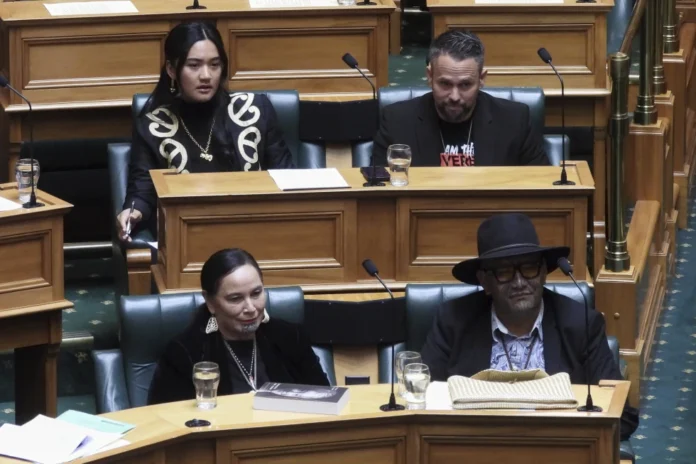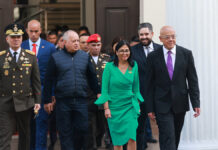
In a historic move, New Zealand’s Parliament on Thursday voted to suspend three members of the Te Pāti Māori party after they performed a traditional Māori haka in protest against a controversial bill.
Hana-Rāwhiti Maipi-Clarke was handed a seven-day suspension, while party co-leaders Debbie Ngarewa-Packer and Rawiri Waititi received 21-day bans, setting a new record for disciplinary action in the country’s legislature. Previously, the longest suspension for a lawmaker had been three days.
The suspensions stem from a protest staged last November during a heated session in Parliament, where the three lawmakers crossed the chamber floor performing the haka, a powerful ceremonial dance traditionally used as a form of challenge. They were voicing opposition to a now-defeated bill that they argued threatened Indigenous Māori rights.
While the protest made international headlines and sparked months of national debate, a parliamentary committee in April concluded that the lawmakers were not being sanctioned for the haka itself, but for breaching parliamentary rules by advancing aggressively toward opposing members during the performance. Maipi-Clarke, however, dismissed this justification, pointing to past instances where similar actions went unpunished.
Despite calls for milder penalties from the opposition, the governing parties, holding a majority in Parliament, pushed through the severe sanctions. Speaker Gerry Brownlee had previously encouraged lawmakers to seek a consensus, acknowledging the cultural and political sensitivity of the issue, but no agreement was reached.
In a session marked by impassioned and emotional speeches, Parliament ultimately approved the suspensions, closing the chapter on a protest that raised critical questions about the role of Māori culture within New Zealand’s legislative processes.
The incident continues to stir public discourse, with many questioning whether the disciplinary action represents a fair enforcement of parliamentary rules or a troubling signal about the acceptance of Indigenous expression in national governance.
Written By Rodney Mbua


















